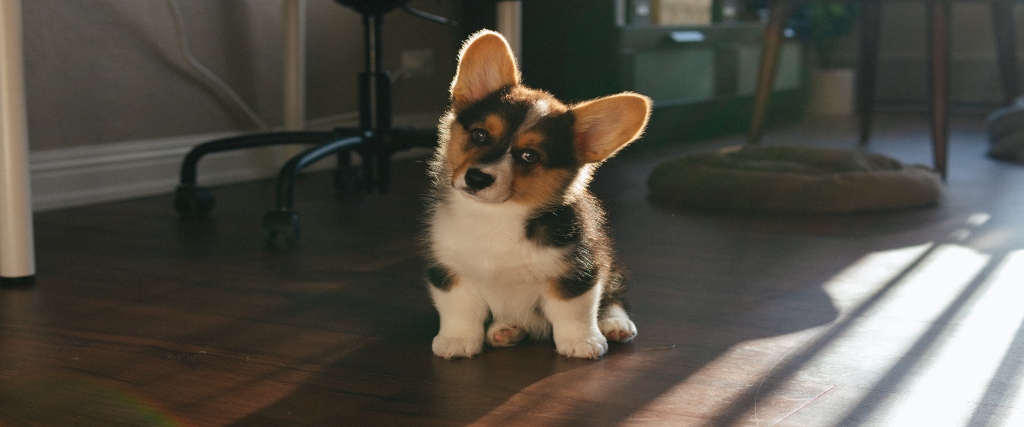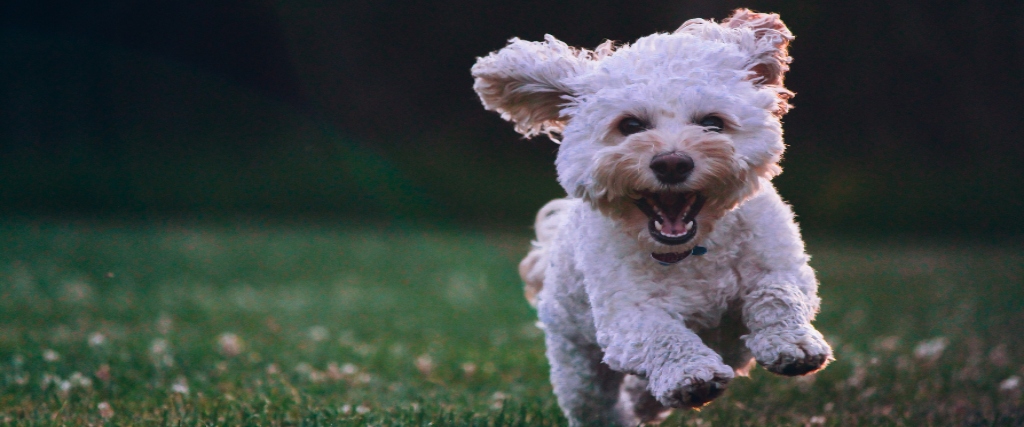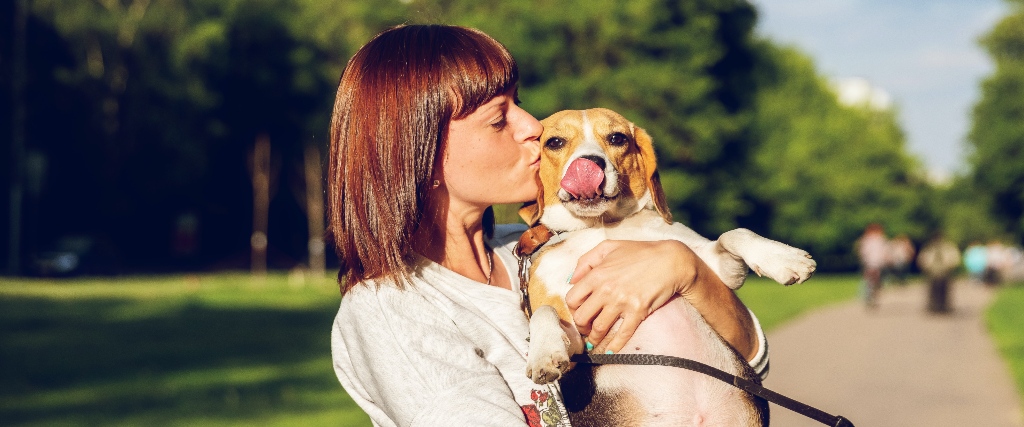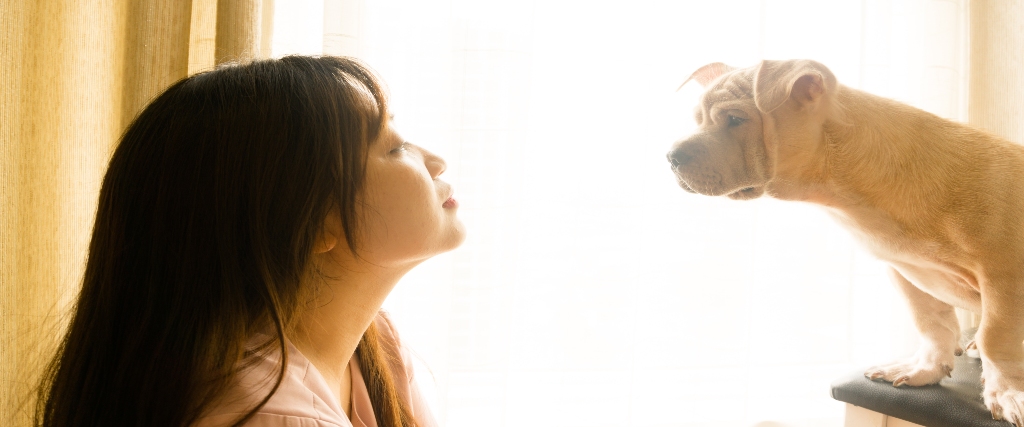Getting a new puppy is one of the greatest joys in life, and it is an exciting time for you as the new owner. There are, however, a few practical things you need to know when you get a puppy to take the best possible care of them. We are going to break down exactly how to best take care of your new puppy.
How To Prepare For A New Puppy
The first step when getting a new dog is to prepare for them to come into your home. Here are a few things that you will need to do, know and think about when getting a new puppy.
Puppy-proof your home
Puppy-proofing protects your new furry friend and keeps your belongings safe from your puppy’s curious teeth and paws. Little puppies are curious; they love to explore. This means that they are both adorable and a big responsibility for the whole family.
Look out for anything that your puppy might chew which could be harmful to them such as electrical cords, anything that could be poisonous, or breakable items. Make sure those items are cordoned off, put away or are well out of reach of your new puppy. Puppies are incredibly curious and can jump, climb and scratch. They will chew anything. We can’t say it enough – keep everything dangerous far out of their reach!
Puppy-proofing your home will make taking care of a brand new puppy all the easier, as well as fun, helping you to enjoy the experience rather than worrying about their safety.
If you have stairs, installing a pet-gate will be helpful to prevent your puppy from falling down and hurting themselves. A pet-gate will also be helpful to prevent your puppy from venturing into areas that are not puppy-friendly. It is useful to note also, that screens may work better than gates, as you’d be surprised by the small spaces little puppies can squeeze through.
Puppies need their own safe space where they feel secure, and where they can rest. Puppies need lots of sleep to grow. In fact, we would go so far as to say puppies need to sleep more than they are awake! Make sure they can nap and do not overtire them.
Your puppy will be newly away from its mother and unfamiliar with the new environment. They should have limited access to different parts of the home to start so that they can safely explore and build their confidence.

Buy the right puppy supplies
When you are getting a new dog of any age it is important to make sure that you have all of the supplies that they need. The items that you will need to get for your puppy are the following:
- Food & water bowls
- A leash
- A collar or harness
- Puppy-specific chew toys (to help save your belongings!)
- A comfortable dog bed
- A screen or gate(s)
- Puppy pads (for indoor accidents)
Many of these items will last for a while as your puppy grows but some of them will need to be replaced over time. Collars, harnesses, and dog beds for example might be adjustable to a certain point but when your puppy gets too big, they will need to be replaced.
Choose the right puppy food
When you are researching the ideal food to give your new puppy, find out from their current home what food they are being fed, and speak to your vet to see if this is the right diet for your pup. Picking the right food can make a big difference for your puppy’s overall health and wellness. If you are to change your puppy’s diet, it must be done gradually over a period of 5-7 days to avoid gastrointestinal upset. You should also ask their previous home (when you take your new puppy home) when they were last fed and what their feeding timetable has been so that the transition is smooth for them.
Remember that you will also need to adjust your puppy’s diet as they grow into an adult dog and as their nutritional demands change.
The car journey home
You’ve planned and prepped your home, now it’s the time for you to finally bring the newest addition home. While the whole family is probably eager to jump in the car, you don’t want to overwhelm your new, young pet. Just take one other person with you to hold the puppy so they can’t wander freely around the car. They should be held or travel in a suitable crate or carrier.
Remember the puppy will most likely bond with the person who collects them. A person likely to be at home with them regularly should be in the car with you.
It’s not uncommon for puppies to suffer from travel sickness, and gastro-intestinal upsets due to the stress & trauma of separation from their mother. So, bring a supply of newspapers, towels and rubbish bags in case of accidents.
Lastly, even though it is tempting to show off your new pet to relatives and friends en-route, rather take them straight home and never leave them unattended in the car.
If you have another pet, don’t forget to give them plenty of love and attention too. Make sure introductions take place in a safe, gradual and calm manner.
Whether you are a seasoned or new puppy owner, each pet you introduce to your family is unique.
Get dog vet insurance for your young puppy
Vet bills can be very expensive and an accident, illness, or emergency could cost as much as R40 000 at any moment in time. Insuring your pet’s health with pet insurance while they are young and healthy is important, as most insurance providers do not cover pre-existing conditions. Once your pup has displayed symptoms of any condition, it is already too late. Pet insurance will give you invaluable peace-of-mind as your new furry friend grows into an adult, and eventually, mature dog.
Short-term pet medical insurance will have an initial waiting period. So, don’t wait to join.
There are age-related factors that make getting cover while your puppy is still young important:
- Pre-existing conditions aren’t covered
- Comprehensive cover is offered to younger pets
- Older pets may have slightly higher premiums when joining
Choosing the right insurance provider from the start is key because some insurers don’t take on so-called “common-breed” conditions, either congenital (present at birth) or hereditary.
For example, Dachshunds and their spines, Bassetts and their ears, or German shepherds and hip dysplasia. Try to choose a provider that covers all your needs, and one that you will stick with. If you are looking for the right plan for you, we have a variety of plans you can choose from when insuring your puppy.
Find a good local vet
As a pet owner, having a good vet on call is an important responsibility. You will need to take your puppy to the vet for a variety of reasons from preventative care such as regular vaccinations, checkups, to accidents, illnesses, and emergencies.
If you are looking for a good vet, ask friends for recommendations or if you got your puppy from a shelter ask their advice on who they suggest. Your puppy must feel comfortable visiting their vet – it shouldn’t be a stressful experience for you or your puppy.
The vet is the first place you will want to go with your new puppy. This visit will help make sure that your pup is healthy and free of any health issues. This will be the first of many visits, so make sure you like and trust your vet on meeting in person.
Expect your newest addition to the family to get a full physical examination, vaccine updates, and have a conversation about diet. After your first visit, vet staff can help set the expectations of your puppy’s appointments. You will likely be given a vaccine schedule for your new pup so that you know when they are due for their next vaccine.

Looking after your puppy at different stages
Now that you have prepared everything you need to bring your new puppy into your home, you will need to focus on how to care for the puppy at different stages. No puppy should be taken away from its mother before they are at least 6 weeks of age. Even if a pup is abandoned and rescued, shelters will make you wait that long before they allow you to take them home.
Caring for your puppy at 6 weeks
When your puppy is this age it is all about comfort and getting them used to their new home, family, and life.
Keep them comfortable
To keep them comfortable, set up an area specifically for them that is small and quiet, so they feel safe, stay out of trouble, and can sleep regularly.
Feeding
Another important part of keeping your puppy healthy is feeding them well. Make sure to give your 6-week-old puppy food. Puppy food is densely rich in nutrients essential for their growth, development, and energy levels. Different breeds can have different needs, so don’t forget to check in with your vet. Young puppies should be fed at least 3 times a day (large breed puppies may need food 4 times a day) and they should always have access to freshwater. They shouldn’t eat immediately before or after play.
Socialisation, walking & training
There should be no socialisation at 6 weeks of age. You can start immediately taking your puppy outside to go potty when they wake-up in the morning, before and after sleep throughout the day, before and after food, as well as generally around playtime.
Avoid using puppy pads or newspaper regularly as this can cause confusion later on. They should not be leaving your property or going for walks at this young age as they are not fully vaccinated, so practice walking them on a lead at home and in your garden.
Preventative Care
If your 6-week old puppy has not had any vaccinations, now is when you need to contact your vet. Chat to your vet about microchipping, deworming, and tick & flea control.
Looking after your puppy at 8-12 weeks
It is around this age when you will start puppy socialisation classes.
You should arrange your puppy’s 2nd or 3rd round of vaccinations now, depending on your vaccination schedule and local area protocol – check with your vet. As your puppy will have only started their vaccinations, but won’t be fully protected yet, limit their contact with other dogs and people.
A few tips when puppies are at this age is to:
- Take them out every 2 hours to remind them to go potty. This applies during the night too, so set your alarm to wake yourself up
- Get your puppy used to being touched and groomed – play with their paws, ears & mouth, look at their teeth, etc. This will help them get used to handling for vet visits
- Feed them 3 times a day – by introducing a feeding schedule, you will help them get used to a routine for their day
- Expose them to interactive play, to different noises and other visual stimulations such as people wearing hats, beards, coats, holding items etc. This will help minimise fear.
- Keep an eye on the new chew toys
- Play, cuddle and love them often to solidify your relationship.
- Ease transitioning your puppy into their new home
Taking care of your puppy after 12 weeks
After 12 you should discuss neutering/spaying with your vet.
Once your puppy has been fully vaccinated and the vet has given you the go-ahead, you can go exploring with your puppy and socialise worry-free. Keep up with your socialisation and training classes. You will start to learn what your puppy likes, which can help you motivate them.
Socialisation is an incredibly important part of a puppy’s development. Introducing them to new people and other pets will help them not feel afraid or aggressive when they see someone new. This will help prevent a number of problems in the future.
A healthy, happy puppy is one that is loved, nourished and has boundaries. Keep on training and loving your puppy.
Caring for your dog after 6 months
By 6-8 months your puppy should have their adult teeth, so they will chew things less. This is when you should think about sterilisation. It may also be the time to explore obedience classes.

Get MediPet dog insurance for your puppy
If you have a new puppy, we can partner with you to explore a plan that suits your individual needs. The most commonly claimed conditions for puppies under one year of age are vomiting & diarrhoea, ear infections (otitis), ingestion of foreign materials, lameness/limping and allergies. Chat to us about any of your questions. Otherwise, get a free quote for puppy insurance here.
Medipet Animal Health Insurance Brokers (Pty) Ltd (MediPet) (FSP Licence No: 15491) is underwritten by Renasa (www.renasa.co.za) non-life insurer & FSP.


